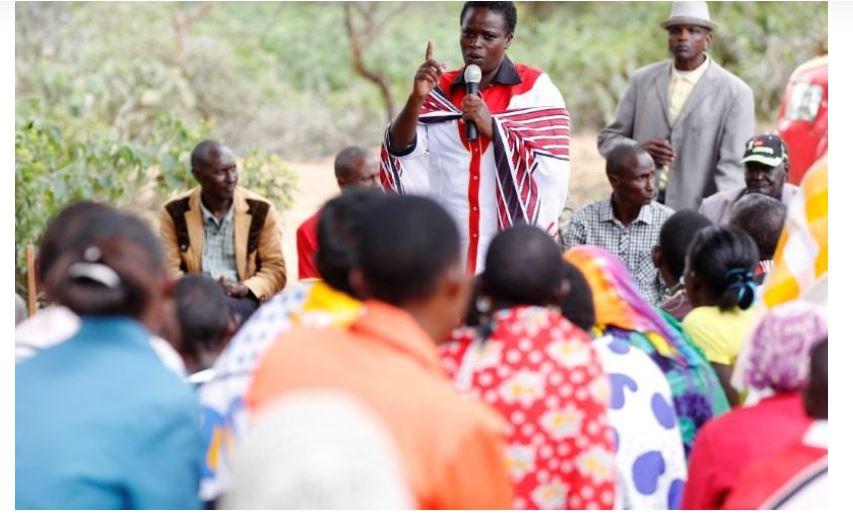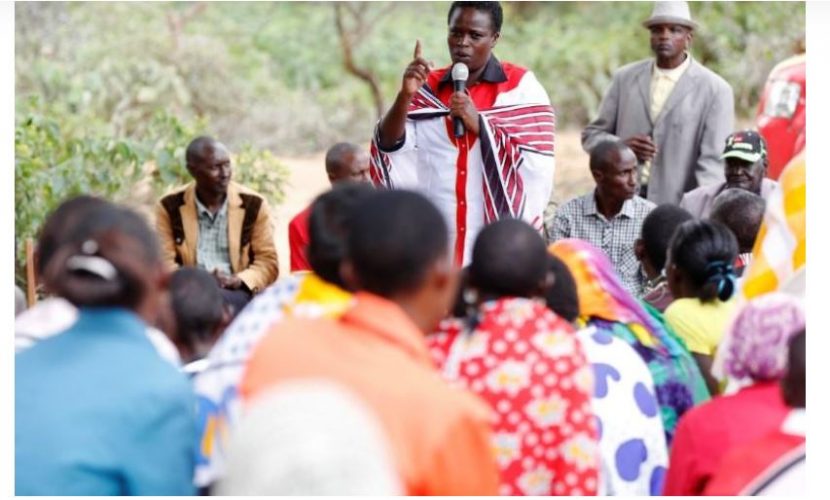Since entering politics, Kenyan lawmaker Sarah Korere has been insulted, shot at, slapped by a colleague and cursed by tribal elders — but she’s still trying to take a man’s parliamentary seat in one of Kenya’s most violent regions.
Ms Korere’s experiences are symptomatic of a wider hate campaign against female candidates in Kenyan politics, women representatives say, which helps give the East African country the lowest representation of women in politics in the region.

The result is women lack legal protection in areas such as property rights, child support, health and education. Kenya passed a law outlawing domestic violence only in 2015.
Ms Korere helped finalise that Bill, and introduced another requiring employers to provide facilities for breastfeeding staff after she showed up to parliament with a three-week-old baby and found nowhere to nurse.
“They have called me a traitor and a prostitute,” the 40-year-old said with a grin. “When elders cursed me, my mother cried for a week and begged me to leave politics.”
In East Africa, nearly two-thirds of Rwandan lawmakers are women, and in neighbouring Uganda and Tanzania they make up more than a third of legislators. In Kenya, a fifth of lawmakers are women – the same proportion as Saudi Arabia.
Only 16 per cent of the 10,910 candidates competing in this year’s general election are women, the electoral commission said. None of the presidential candidates is a woman.
During the last polls five years ago, Kenya tried to increase women’s representation in the 349-member lower house of parliament and 67-seat upper house.
This involved reserving 47 seats for women in the lower house, and giving them a proportion of “nominated” seats — divided up between parties according to their proportion of the overall vote.
But that forces most women lawmakers into a ghetto where they control budgets that are a small fraction of those run by male lawmakers — or no money at all.
Each elected Member of Parliament gets Ksh60 million ($600,000) annually for development projects in their constituency — vital for building political support. But seats reserved for women get only seven million shillings. Nominated lawmakers get no money at all.

